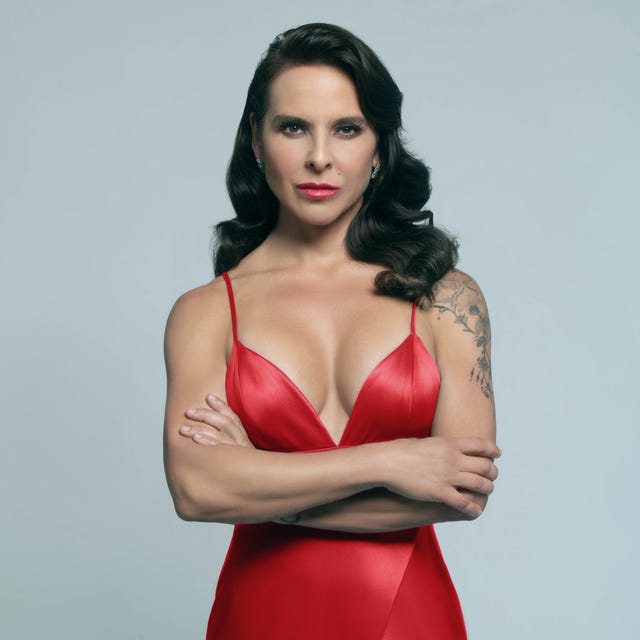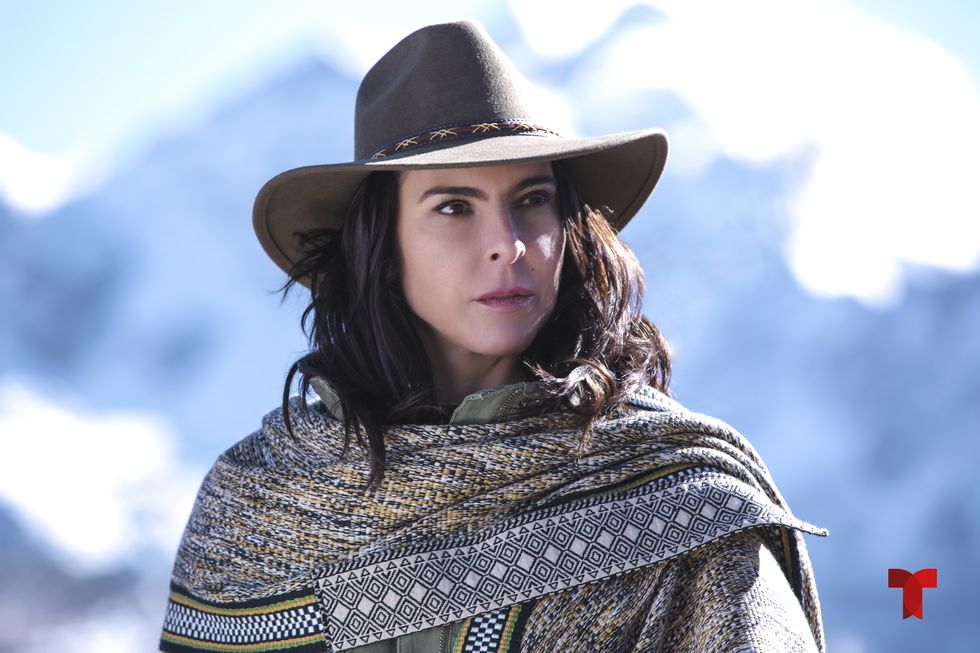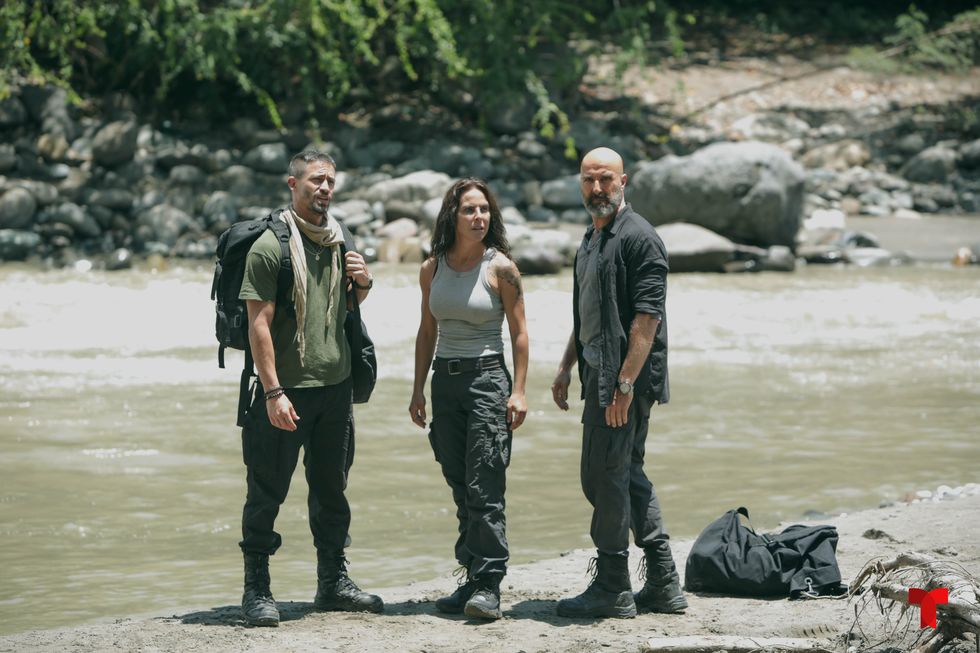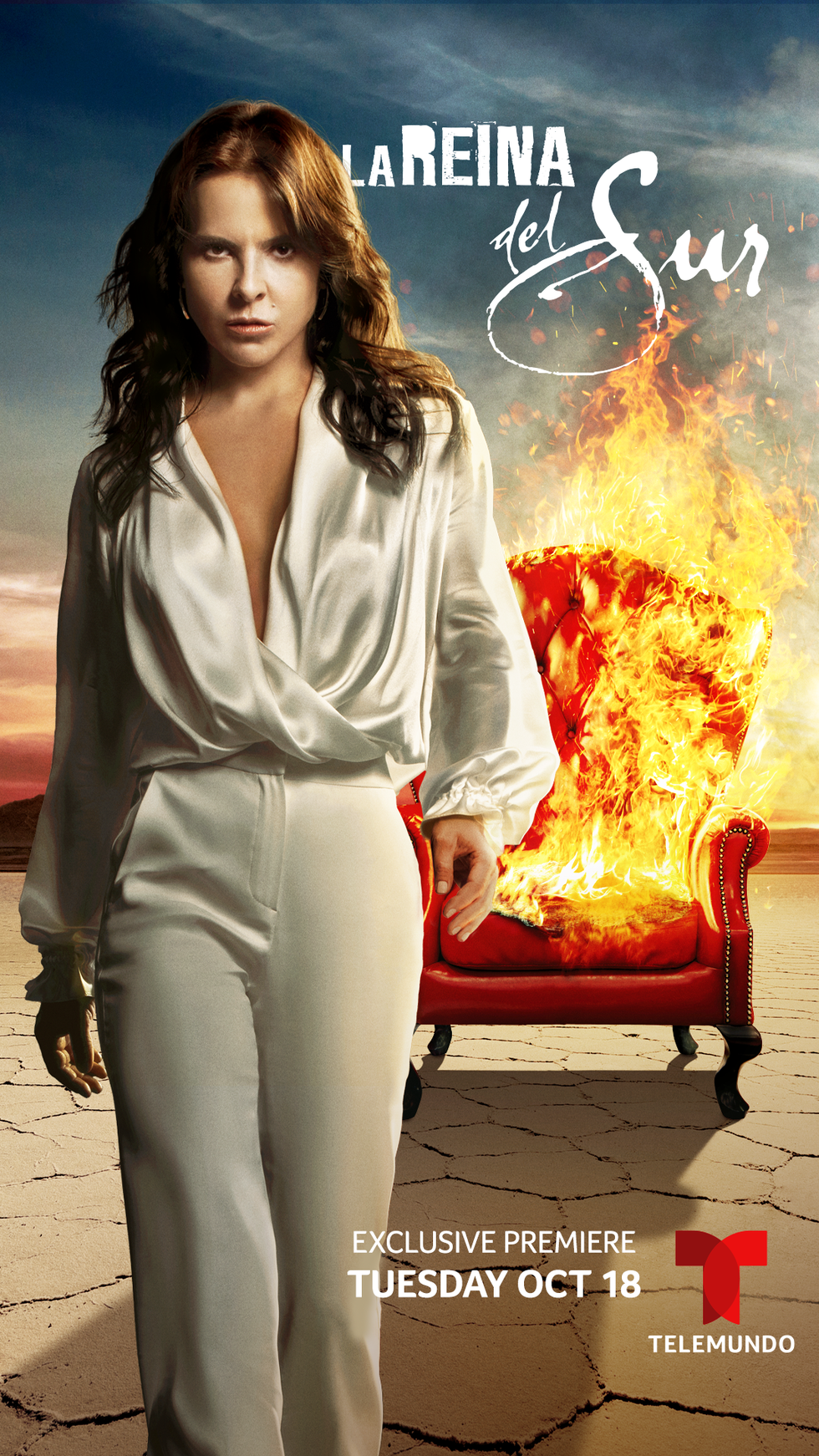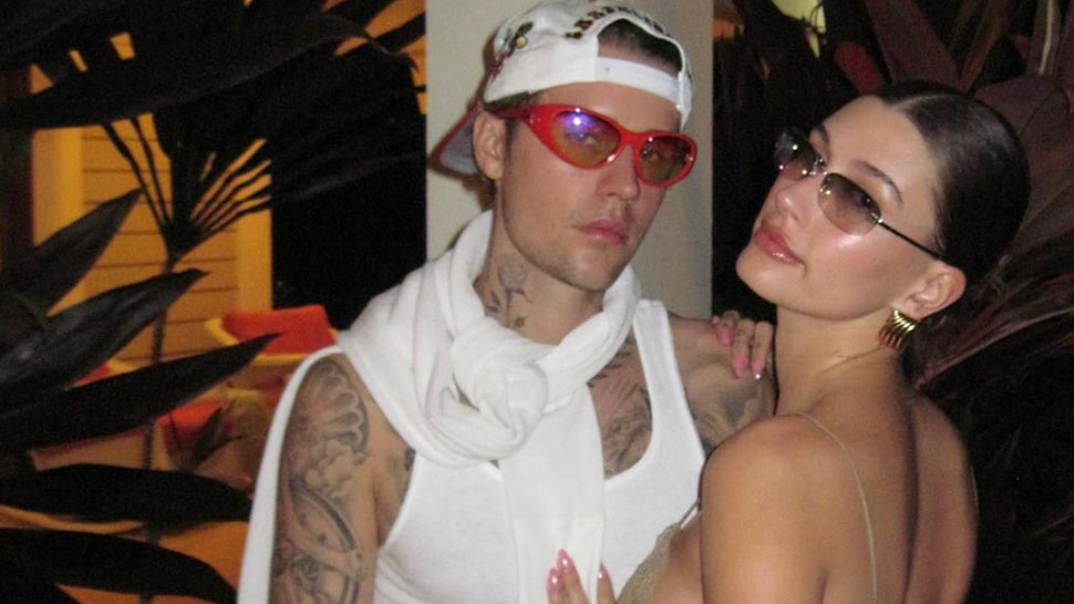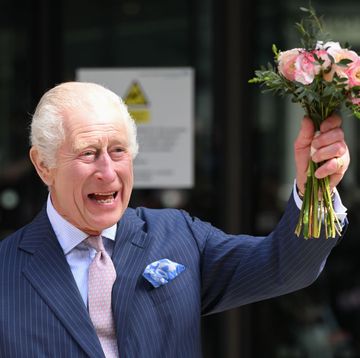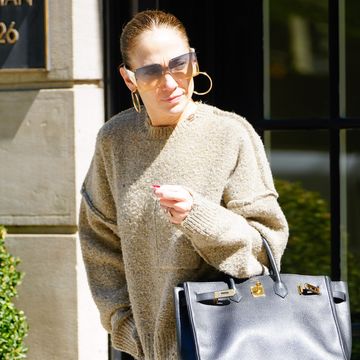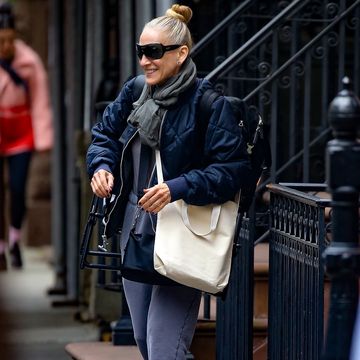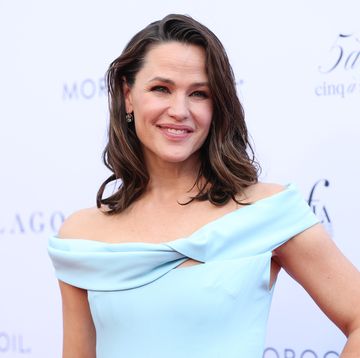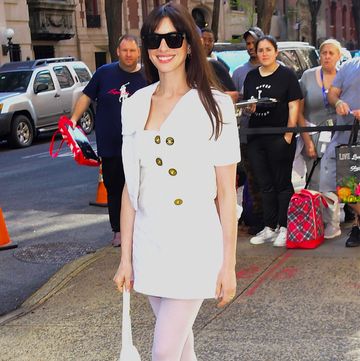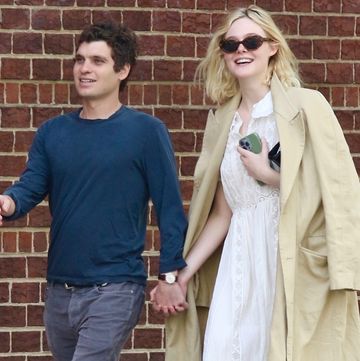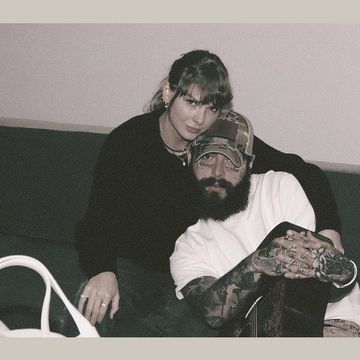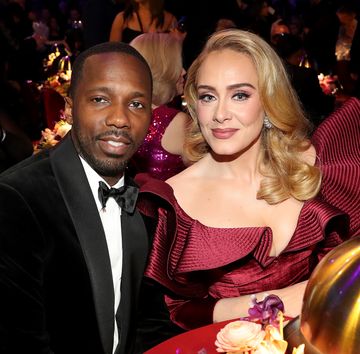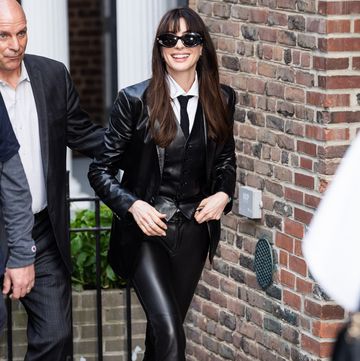Kate del Castillo spent more than a decade at the top of the Mexican entertainment industry; she was the star of some of the greatest telenovelas and considered TV royalty in all of Latin America. But it wasn't enough.
Like many Latinx actors and creatives, del Castillo—whose father is a well-known Mexican actor—was eventually confronted with a choice: Either settle for a career doing low-budget productions in her home country while attempting to improve the state of its industry, or cross over to the U.S. market, where she could either epically flop or make it big. She chose the latter.
"When I started working, Mexican cinema wasn't that great, so our only option was telenovelas. I loved doing them; I did probably nine or 10. But then, when you are a leading person in telenovelas, you kind of do the same thing, only the guy you kiss changes. So I was getting bored, and I wanted to do other things, but in my country, I didn't get those opportunities, unfortunately. It's really sad," del Castillo tells BAZAAR.com. "So that's why I came to the United States; I started shooting this TV series for PBS called American Family. I wanted to be in the U.S. because I thought it would give me better opportunities—and I was right."
And yet, in attempting to tap into the U.S. TV and film industry, del Castillo was faced with another issue that has long plagued Latinx actors: She was seen as the token Latina, and more often than not, offered clichéd or stereotyped roles.
"It's been hard. It's been slow," she says of the progress of Latinx representation in Hollywood. Del Castillo adds that she thinks the U.S. TV and film industry is "trying very hard" not to give Latinos stereotyped roles, "but they still screw up the whole thing."
"I think the narrative is still wrong. I think we need to change the narrative from the beginning," del Castillo says. "I still see those kinds of roles that are not okay—not always the maid, or the prostitute, or the narco, but still very stereotyped. I'm not okay with that, and I'm trying [to help change it]. That's one of the reasons I founded my production company, Cholawood Productions, because I was not getting the roles that I wanted to portray."
The name Cholawood is an ironic play on Hollywood that reclaims the word chola (an offensive term used to refer to Mexicans living in the United States, often in low-income areas).
"I want to do amazing shows, mainstream shows, yes, with Latinos and Latinas—even better—but not necessarily 'Latino stories.' I don't even know exactly what that means, but we have the same [everyday] problems as white Americans, African Americans, and Asians, so why label it?" del Castillo says. Her dream role is a Marvel action hero—"a Latina heroine," she says.
Despite the prejudice she's faced in Hollywood, the actress has landed roles in various series since making the move, including in Weeds, Grimm, CSI, and Jane the Virgin, which, fittingly, is a hilarious satire of Mexican telenovelas. Most recently, she starred as the lead in La Reina del Sur, (The Queen of the South), which is debuting its third season on Telemundo this October 18.
The series focuses on the life of Teresa Mendoza, the girlfriend of a drug trafficker nicknamed El Güero. When he is killed by a rival cartel, Mendoza flees and launches her own operation. The show follows her through her struggles to rise from poverty and find financial independence—even if it means breaking the law and risking her life.
Glamorizing the narco sphere is not something anyone in the series' production wants to do, but del Castillo points out, "This is what's going on. It's something that is real. Yes, we're fed up about narcos, but still they're there. It's about how you tell the story." In the third season, the actress says, the story is less about the drug lords and more about the family-run nature of the trade groups and how involved women often are.
Dark storyline aside, La Reina del Sur is genre-breaking in its use of a predominantly female and predominantly Latino cast—all who speak Spanish. As a co-production of Telemundo and Netflix, it is also the most ambitious Latin American TV series to ever be made, in terms of budget, audience reach, and number of episodes (60 or more per season).
(Five years after the 2011 premiere of La Reina del Sur, a USA Network remake, Queen of the South, was released on Netflix.)
"I love it because it's like still doing television in Mexico, because I'm speaking Spanish, but on a whole different level," del Castillo says. The onscreen crossover has meant everything to del Castillo, and in portraying her character in the series, she's found parallels to her own life.
"I do feel so close to Teresa Mendoza, to be honest—I don't know if it's fortunate or unfortunate, but I do, in so many ways," del Castillo jokes. "We've both survived a bunch of big situations. I think we're both resilient women. Teresa is on another level—she's survived people trying to kill her; fortunately, I haven't—but she's very motherly in the way she loves and very strong in other ways, and sometimes she thinks like a man, in a world [run by] men where she has to break through. And I think I have that as well, even if I'm not a mother, because I never wanted to, I do have that instinct of protecting. We both love tequila, we're Mexicans, and we love men and we were always unfortunate in love—but now I'm starting to get fortunate in love, so we'll see."

Rosa Sanchez is the senior news editor at Harper's Bazaar, working on news as it relates to entertainment, fashion, and culture. Previously, she was a news editor at ABC News and, prior to that, a managing editor of celebrity news at American Media. She has also written features for Rolling Stone, Teen Vogue, Forbes, and The Hollywood Reporter, among other outlets.
